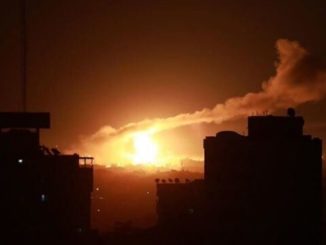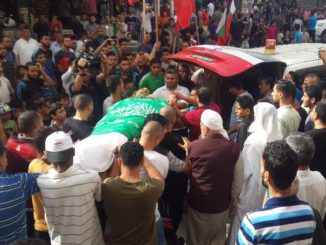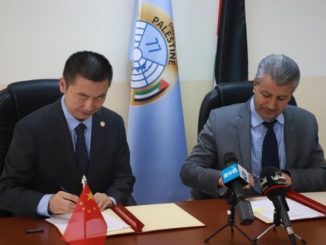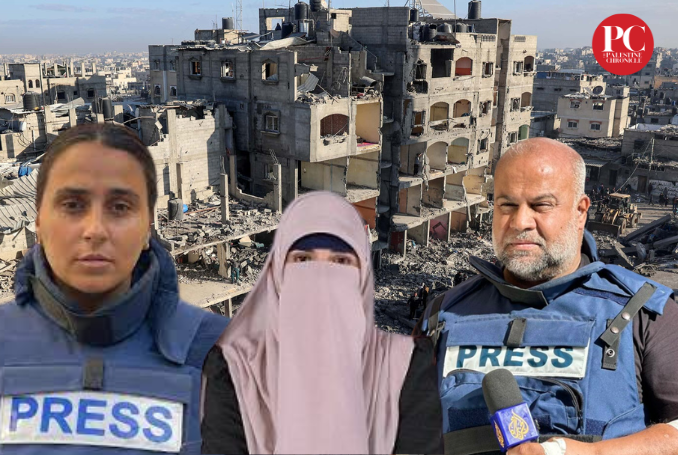
The United Nations cultural agency has announced that all Palestinian journalists covering the genocide in Gaza are to receive the UNESCO World Press Freedom Prize.
A decision which seeks to honor those journalists, without which we wouldn’t know what is happening on the ground and who have frequently become the very stories they are covering.
Unique in Human History
The ongoing war in the Gaza Strip is unique in human history on many accounts, two of which are that it is one of the only conflict zones where foreign reporters have not been able to be present on the ground and has been the deadliest conflict for journalists in recorded history.
The France-based Reporters Without Borders (RSF) puts the death toll of journalists at over 100, while others, unable to confirm the fates of the some 14 missing under the rubble, put the toll at just over 90.
In the first three months of the Gaza war alone, the Israeli military had already murdered more journalists than had been killed during the entirety of World War 2 and in the Vietnam War.
While hundreds of foreign journalists from across the globe have been denied the ability to enter the Gaza Strip, the indigenous reporters, camera people and media workers have served as the narrators of their own people’s struggle to stay alive during a genocide.
Perhaps the most well known story of journalistic heroism comes from the man considered among media workers in Gaza as the grandfather of journalism in the besieged coastal enclave, Al-Jazeera’s Wael al-Dahdouh.
Wael al-Dahdouh
Wael Dahdouh was live on air, reporting for al-Jazeera Arabic, when he suddenly became the center of the very story he was covering. Informed that an airstrike had targeted his family, he was filmed holding the stiff body of his murdered 7-year-old daughter Sham, before visiting the bodies of his wife, a grandchild and one of his sons.
In scenes broadcasted live on Al-Jazeera Arabic, the Gaza Bureau chief, brought tears to the eyes of the Arab World when he uttered the phrase “they are taking it out on our families”.
Displaying unyielding courage, unexpected from any on the outside of the Gaza Strip, he addressed the media by saying “it is okay” and then, after laying his family’s bodies to rest, returned straight back to his duties as a journalist.
His older son Hamza, also a journalist, was later killed in an airstrike that targeted the car he was traveling in; to cover events that day.
This came after Wael and his colleague, Samer Abu Daqaa, were wounded by a drone strike and left trapped inside the school in which they were located in Khan Younis. While Samer died of his injuries, Wael managed to pull through suffering a shrapnel injury to his arm.
Refusing to Give Up
In the English language, journalists like Hind al-Koudry, Plestia al-Aqad, Bisan Owda and Motaz al-Azaiza served as crucial voices that educated people across the Globe, touching hearts through social media in a way not possible on broadcast media.
Until this moment, both Hind and Bisan are still on the ground in Gaza, refusing to give up on what they see as their duty to report the truth from within the most dangerous warzone on the planet.
There are also the cases of camerapeople, like Ali Jadallah who lost two of his brothers, his sister and his father in an airstrike that targeted their family home. A video went viral of Ali carrying his father’s body out from the back of his car and into the hospital. He later wrote an article, which was published in The Economist, which he opened with the following paragraph:
“I’m used to being the person behind the camera. Then on October 11th I was taking a photo of a house that had been bombed. It was near the street where my parents lived with my two brothers and sister. I heard an explosion and realized my family house had been hit. I ran towards it and saw it had been reduced to rubble.”
Others like Dua Roqa’, Bayan Abu Sultan, Husam Shabat, Motasem A Dalloul, Anas al-Sharif have also lost friends and family while working to educate the world about the situation in the Gaza Strip.
Palestinian journalist Bisan Owda expressed deep gratitude to pro-Palestine student protesting globally, explaining how she was deeply affected by their efforts, stating that," I feel it here im my head that I'm going back home and free." pic.twitter.com/qNRfPK8GtB
— PALESTINE ONLINE ?? (@OnlinePalEng) April 27, 2024
In the case of Bayan, she briefly went missing when Israeli forces stormed the area near her home, with her last tweet serving as a cry for help, expressing that she had just watched her brother die in front of her as a result of Israeli fire. Motasem, who was one of the first journalists to document the aftermath of Israel’s most recent massacre at al-Shifa Hospital, in Gaza City, lost his pregnant wife and 3-year-old son to an Israeli airstrike.
Wafa Aludaini
There are many journalists who remain relatively unknown, such as cameramen like Saraj al-Madhoun, and media worker Wafa Aludaini who was subjected to a vitriolic barrage of comments on Julia Hartley-Brewer’s show on Talk TV.
Julia, from the comfort of her studio in the UK, decided to argue that Wafa should leave her home, which the Israeli military threatened to bomb and that she was essentially bringing harm on herself by not leaving.
Wafa was later subjected to attacks from the Israeli media and directly threatened, along with her family, by the military and had to flee her home.
The case of Wafa is important for understanding the circumstances under which journalists work in the Gaza Strip, while living under threat of murder, pushed from their homes, losing members of their families and friends, they are also greeted by many media personalities in the West with condescension and interrogated as if they are working for a terrorist organization.
To read Wafa Aludaini’s contributions to the Palestine Chronicle, click here.
Humanity Has No Price
Palestinian journalist Ruba Shabit, who is currently a refugee in Belgium and worked diligently to bring the world coverage of the May 2021 Gaza War, recently said that “journalism provides the eye of the truth, that’s what we’ve learnt being Palestinian journalists.
“I’ve met and worked with countless journalists and reporters from different places around the world, and I can tell you that the common value all real journalists share is: that no matter what we’re going to encounter or face through our work, conveying the truth is our mission.
“Being a journalist in the Gaza Strip, while covering several wars and the daily struggles Palestinians endure, has taught me that humanity has no price.”
Ruba has lost dozens of family members and close friends, watching on from a foreign country as a refugee, powerless to help her displaced family that are currently sheltering in a tent near Rafah.
If it wasn’t for the brave journalists of Gaza, the world would not know what it does today, and for simply doing their job many have paid the ultimate price. They have provided the model for what real journalism truly looks like.
Commenting on the announcement that the UNESCO Press Freedom Prize be granted to Palestinian journalists in Gaza, Mauricio Weibel, chair of the international jury of media professionals, said that “in these times of darkness and hopelessness, we wish to share a strong message of solidarity and recognition to those Palestinian journalists who are covering this crisis in such dramatic circumstances”.
(The Palestine Chronicle)
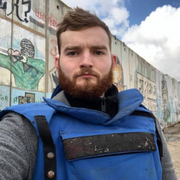
– Robert Inlakesh is a journalist, writer, and documentary filmmaker. He focuses on the Middle East, specializing in Palestine. He contributed this article to The Palestine Chronicle.

